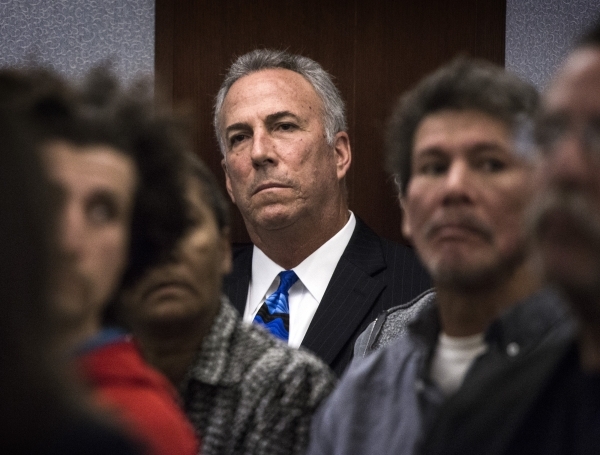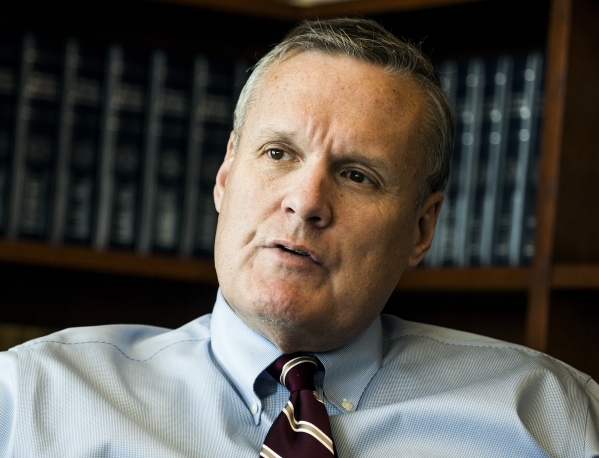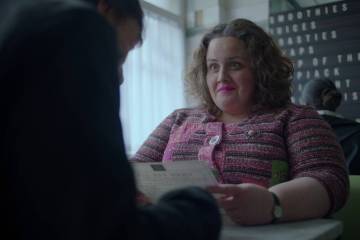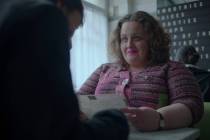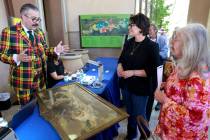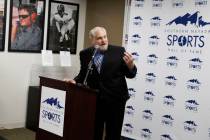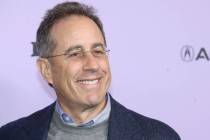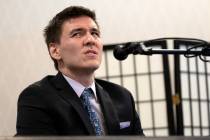The CSI effect: fictional influence in the courtroom
For a show that rarely features the inside of a courtroom, "CSI: Crime Scene Investigation," the fictional television drama with an exaggerated portrayal of forensic science, certainly has had great influence at Clark County's Regional Justice Center.
Whether it be criminal prosecution in a murder trial, or a civil dispute about a car crash, lawyers at the Las Vegas courthouse are constantly asking what jurors think of crime scene shows and the evidence collected.
The questions typically arise when attorneys are deciding who to pick for a jury. They'll ask who watches the show, or similar programs, and describe how evidence is gathered in real life. In Las Vegas, those who collect evidence are known as analysts, not investigators.
Clark County District Attorney Steve Wolfson said jurors have come to expect some sort of scientific evidence — from fingerprints to DNA — in almost every case.
Prosecutors now fret that jurors who watch crime shows believe that all criminals leave behind detectable, conclusive forensic evidence, and they'll refuse to convict real-world criminals without it. The phenomenon even has a name: The CSI Effect.
"Prosecutors have to be mindful that jurors have certain expectations about physical evidence," Wolfson said. "If there is a gap or a missing piece, we have to explain it. A lot of jurors are watching these shows."
Chief Judge David Barker, a former prosecutor, said he could not recall a trial in his eight years on the bench in which lawyers have not asked about the show.
"Even if there isn't forensic examination done as a component of proof, you'll hear lawyers explain why," Barker said. "With CSI and those shows, they go so far outside four corners of what's accepted science, that's what's been more challenging."
Even if CSI may not reflect the true depth of how cops solve crimes, the show has made for more informed jurors.
Defense lawyer Ozzie Fumo, however, said prosecutors make too much out of the show's influence.
"We never really address it, other than to combat something the state says," he said. "The state hammers on (CSI) really hard when they don't have evidence, and if they have a ton, they're building the show up. Jurors are smarter than what the state gives them credit for."
Prosecutors say they're not talking down to jurors, but they want to ensure there's not someone who thinks fingerprints can be collected from running water.
"When CSI started, it changed all of our jury selection," prosecutor Marc DiGiacomo said. "We have to ask these questions so we don't get an individual who doesn't understand the technology."
Defense attorney Robert Langford said CSI "raised the bar" for prosecutors.
In the past, he said, "juries would scratch their heads at the scientific evidence and say, 'Yeah, whatever.'
"(CSI) made it more difficult for a DA to go into court without scientific evidence."
Lawyer Dayvid Figler said the show also presented an obstacle for defense attorneys.
"In the television shows the evidence is always infallible," he said. "But in real life we are up there challenging the different types of forensic evidence that come our way. While the prosecutor is worried the standards may be too high, the defense has to also be concerned that the mere existence of some scientific evidence is accepted without challenge."
Still, Fligler could not recall anyone believing that CSI mirrors true crime scene investigations.
"You'd have to have a pretty dumb juror," he said.
Last month, Investigation Discovery announced that it had ordered six episodes of Las Vegas D.A., a "reality" show about Wolfson's office set to air next year.
Wolfson said he expected the show to occasionally feature prosecutors discussing scientific evidence.
"I would submit that the vast majority of cases featured will have physical evidence," Wolfson said, "because the show's going to be about the evidence."
Whether Wolfson's docudrama will have as much influence on the courthouse where it takes place as the CBS hit remains to be seen.
Contact reporter David Ferrara at dferrara@reviewjournal.com or 702-380-1039. Find him on Twitter: @randompoker



